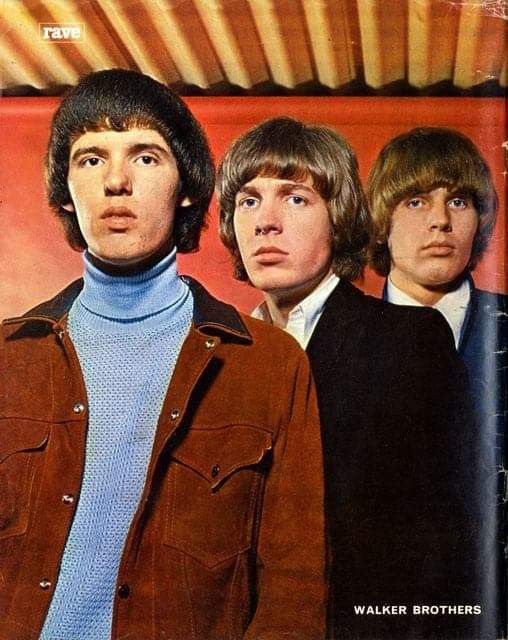
☀️ A Timeless Lament on Unrequited Love and Despair
In the mid-1960s, a certain melancholic elegance swept across the music charts, courtesy of an American trio who found their true fame on British shores. The Walker Brothers, a name that conjures a unique blend of orchestral pop and deep, resonant vocals, were at the zenith of their powers. While their previous hits, like “Make It Easy on Yourself,” had established them as purveyors of sophisticated heartache, it was their 1966 release, “The Sun Ain’t Gonna Shine Anymore,” that cemented their legacy. This hauntingly beautiful track wasn’t just another song; it was a cultural moment, a sonic distillation of profound sadness that resonated with millions.
This isn’t a typical story of overnight success. The song itself was a cover, a fact that’s often forgotten but crucial to its narrative. Originally recorded by Frankie Valli in 1965, his version, while pleasant, lacked the dramatic grandeur that the Walker Brothers would later infuse it with. It was a solid album track, nothing more. But when the Walker Brothers got their hands on it, they transformed it into something else entirely—a cinematic masterpiece. Under the masterful arrangement of producer Johnny Franz and the inimitable musical direction of Ivor Raymonde, the song was given a new life. The lush, swelling strings, the dramatic horn stabs, and the thunderous timpani created a soundscape of epic proportions. It was a wall of sound that felt both immense and deeply personal, a paradox that defined their unique appeal.
But the heart and soul of the song, of course, was Scott Walker’s voice. A baritone of extraordinary depth and emotional range, he didn’t just sing the lyrics; he inhabited them. When he delivered the opening lines, “The sun ain’t gonna shine anymore / The moon ain’t gonna rise in the sky,” it wasn’t just a declaration; it was a profound lament. The pain in his voice felt so raw, so genuine, that it was impossible not to feel it with him. The song became a universal anthem for anyone who has ever experienced the emptiness that follows a breakup or unrequited love. It’s the feeling that the world has lost its color, that the very light has gone out of the sky.
This emotional resonance, combined with the spectacular production, propelled the single to the top of the charts. In the United Kingdom, it was a smash hit, reaching Number 1 on the UK Singles Chart and staying there for a number of weeks. It was a monumental achievement and a testament to the song’s widespread appeal. In the United States, while not as dominant, it still performed respectably, peaking at Number 13 on the Billboard Hot 100, proving that its appeal transcended the Atlantic. The song’s success was a validation of the Walker Brothers’ unique artistic vision and their ability to elevate pop music to a new level of sophistication and dramatic intensity. It wasn’t just catchy; it was deeply moving. It wasn’t just a fleeting pop tune; it was a timeless classic that would echo through the decades.
Looking back, “The Sun Ain’t Gonna Shine Anymore” remains a cornerstone of the 1960s British music scene. It’s a song that speaks to a generation that understood that pop music could be both wildly popular and profoundly artistic. It reminds us of a time when songs were crafted with an almost symphonic care, and singers were true storytellers. For many of us, hearing those opening notes transports us back to a time of first loves and first heartbreaks, a time when a three-minute song could contain a whole world of emotion. It’s a song that proves that even in the deepest despair, there is a kind of beautiful, unforgettable light.